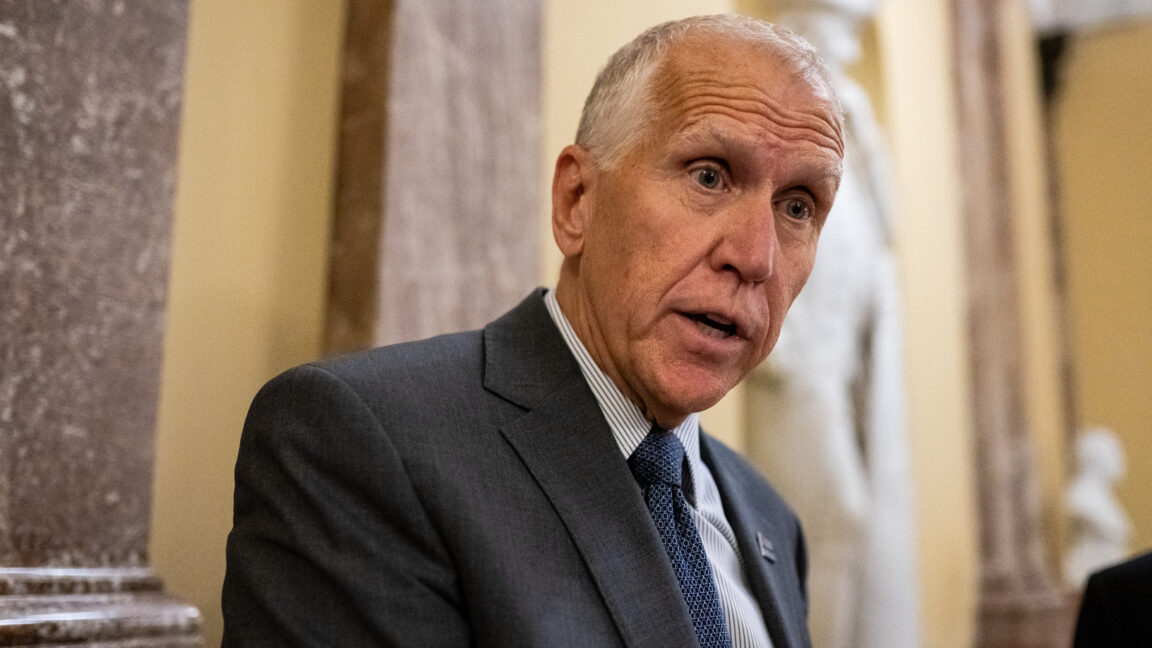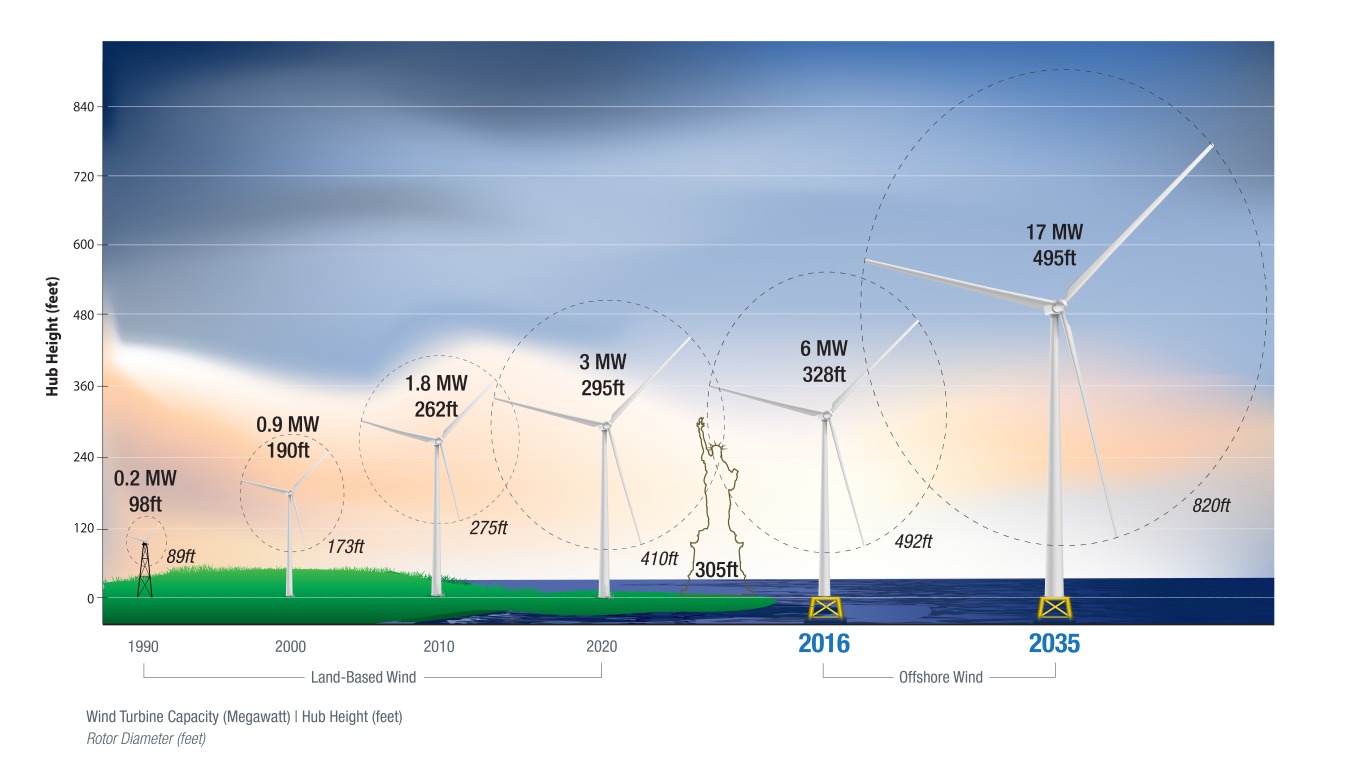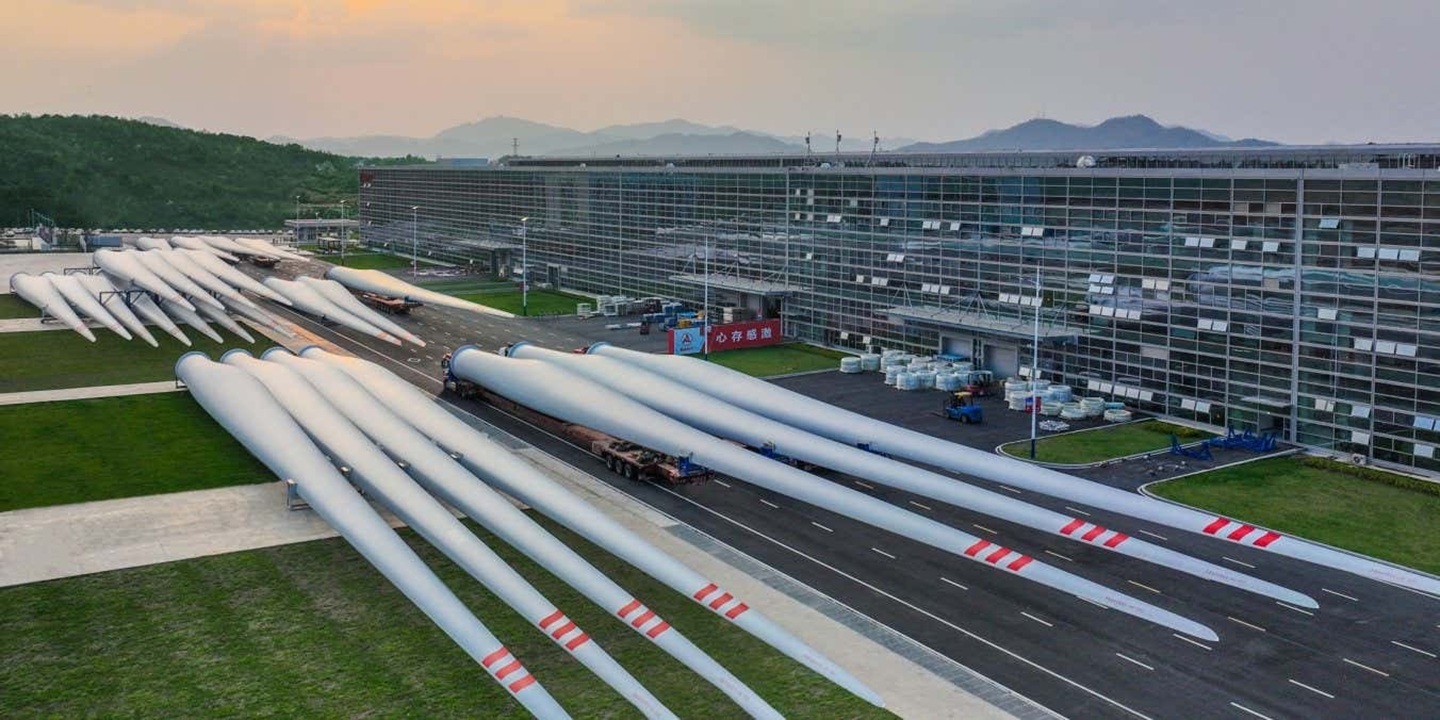Chris West was sworn in as the president of the National Sheriffs’ Association on June 26. West is the sheriff of Canadian County, Oklahoma. He’s also an ardent supporter of President Trump who traveled to Washington D.C. to join the thousands who protested Trump’s election loss on Jan. 6, 2021.
Trump held his Jan. 6 rally after spending weeks falsely insisting the election was, as he said on stage that day, “stolen.” Of course, officials at every level of government — including some senior figures in Trump’s first administration — have affirmed there was no evidence of fraud whatsoever.
West’s participation in those demonstrations made headlines in his local community when the rallies turned violent after Trump supporters stormed the U.S. Capitol. West — a former state trooper who first assumed office in 2017, running as a Republican — responded by holding a news conference two days after the chaos where he denied rumors that he was among those who rushed into the building and said he did not personally witness any violence at all that day. He also described the events as a “tragedy” and criticized those who engaged in unlawful activity.
“What happened at the nation’s Capitol, the crimes that were committed … that’s horrible,” West said, adding, “The fact that law enforcement were assaulted at our nation’s Capitol … I rebuke all of that, every bit of it.”
West, who announced that he had deleted a Facebook page following the controversy, said he was there as part of his “personal politics,” which he argued do not affect his role as sheriff. He also stressed that he believes “we have to have peaceful transitions of power.”
In the years since he traveled to Washington for the Jan. 6 demonstrations, West has apparently returned to Facebook. And, in posts on the social media site, West has echoed Trump’s false claims about the 2020 election.
There is one Facebook page linked on West’s official campaign website. That page, which is titled “Re-elect Chris West for Sheriff 2024” includes multiple posts from a personal account for West where he has weighed in on Trump, the 2020 election, and Jan. 6.
On November 2, 2021, nearly a year after the President lost his first re-election bid, West posted a photo that appeared to show Air Force One at a Trump campaign rally alongside a caption declaring, “WHAT WINNING LOOKS LIKE.” A friend responded with a post that said, “Trump 2024!!” West countered with a message indicating he wasn’t focused on Trump’s next campaign because he seemed to believe that Trump was still the legitimate commander in chief.
“He’s currently our president.We all know that,” West wrote.
The idea that Trump was somehow still president after losing in 2020 was popular among conspiracy theorists during the administration of his successor, President Joe Biden. West echoed that messaging again in a post on January 31, 2024 where he shared a prediction for that year’s presidential race: “Trump wins it all!!! Take it to the BANK! 45, 46, 47!!!!” The numbers cited by West appear to be another echo of the conspiratorial narrative Trump was actually president throughout his first term, the current one, and in the four years after he lost and was out of office.
This year, with Trump actually back in office, West was apparently back in Washington, D.C. as well. He posed for a picture in front of the Capitol building and shared it on Facebook on February 6 with a note that said, “Donald Trump is Taking the Peoples capitol back.” One of his friends on the site weighed in with a pair of comments in which the person suggested that FBI agents, and others who were involved in investigating the criminal cases against Trump and the people who stormed the Capitol, should now face prosecution.
“Trump is on a role [sic] to get this Country Right. Now we need DA and AGs to start aggressively prosecuting the criminal cops under 18 USC 242,” the person said in one comment, before adding another four minutes later: “All the FBI AGENTS involved in J6 and the Trump prosecutions should face this. So should the ATF agents for the raids and MURDERS of innocent firearms owners.”
West “liked” that first message about “criminal cops.”
TPM reached out to West on Tuesday morning to ask about his commentary, including his apparent support for the idea that other law enforcement officers should be prosecuted. We made multiple requests that detailed the content in some of his specific social media posts. West did not respond. However, after we reached out, his post declaring Trump president “45, 46” and “47” was deleted.
West — and his presence in D.C. on Jan. 6 — was previously cited by the Washington Post as an example of a recent trend of extremist right wing politics among sheriffs nationwide, including those involved in the so-called “constitutional sheriffs” movement. Jessica Pishko, a lawyer and author who has written extensively on sheriffs and their political influence, also referred to West in her 2024 book, “The Highest Law in the Land: How the Unchecked Power of Sheriffs Threatens Democracy.” After West was sworn in as president of the National Sheriff’s Association, Pishko took note of the event — and West’s association with January 6 — on her social media.
In a conversation with TPM on Tuesday, Pishko described the National Sheriff’s Association as, “in essence, kind of the only national sheriff group.” She said the organization had fielded calls to censure West after his attendance at the Jan. 6 demonstration made headlines. Pishko found it notable that, rather than reprimanding West, the group elevated him.
“To me it’s significant because he was known to be there, it was news that he was there, but rather than do anything to censure him or suggest that he shouldn’t be in leadership, the NSA obviously did the opposite,” Pishko said.
Pishko said that West participated in a fellowship for sheriffs that the Claremont Institute, a right wing think tank that has promoted an anti-immigrant agenda, launched in 2021. The group’s webpage indicates the fellowship program teaches sheriffs about “militant progressivism and multiculturalism.” Pishko believes the National Sheriff’s Association has recently moved away from older leaders who were aligned with an earlier strain of Republican politics and towards figures like West, who are aligned with Trump’s MAGA movement and a more radical right wing agenda. She cited the Claremont Institute as a major driver of the phenomenon.
“A few other Claremont Sheriff Fellows and other kind of constitutional-style sheriffs are on National Sheriff Association leadership roles. So like, this is kind of an ongoing issue,” she said. “The Claremont Sheriff Fellowship is taught by the people who are now promoting ending birthright citizenship. They back zero immigration, so like deporting everyone who’s an immigrant. … The influence of the Claremont Institute right now is pretty high and they have taught law enforcement to be like really, really far to the right.”
Both the NSA and Claremont have connected sheriffs with Trump administration figures like FBI Director Kash Patel, White House Deputy Chief of Staff Stephen Miller, and acting ICE Director Tom Homan who are eager to have them cooperate with federal efforts to stage mass deportations and crack down on protests, according to Pishko.
“People like Tom Homan and Stephen Miller have been, in the last four years, also communicating with sheriffs,” she said.
Even before he was sworn in as NSA president, West has engaged with the Trump White House at a high level. In April, West was invited into the Oval Office for a photo opportunity as Trump signed a pair of executive orders, including one aimed at cracking down on so-called sanctuary cities that offer protections for undocumented immigrants. Some on the right view sheriffs as a potential resource to round up migrants in jurisdictions where local politicians and police agencies are unwilling to cooperate with the Trump administration’s mass deportation agenda.
Because of his high-level connections and history, Pishko described West as an “avatar” for the new strain of what she called “MAGA sheriffs.”
On Facebook, West describes himself in more Biblical terms.
He made a post in September 2024, sharing a meme that said, “AT ONE POINT NOAH WAS SEEN AS A CRAZY CONSPIRACY THEORIST. BUT THEN THE RAIN CAME AND ALL THE FACT CHECKERS DROWNED.”
West added a note of his own to that post.
“Just call me Noah,” he wrote. “Because the rain is coming!”


 There was the job where they had an incident on my very first day, and by 7 pm I was like “why isn’t someone telling me I should go home?” There was literally nothing I could do to help, I was still setting up my accounts, yet I had the distinct impression I was expected to stay.
There was the job where they had an incident on my very first day, and by 7 pm I was like “why isn’t someone telling me I should go home?” There was literally nothing I could do to help, I was still setting up my accounts, yet I had the distinct impression I was expected to stay. There was the job where they were walking me through a 50-page Microsoft Word doc on how to manage replication between DB nodes, and I laughed a little, and looked for some rueful shared acknowledgement of how shoddy this was…but I was the only one laughing.
There was the job where they were walking me through a 50-page Microsoft Word doc on how to manage replication between DB nodes, and I laughed a little, and looked for some rueful shared acknowledgement of how shoddy this was…but I was the only one laughing.
 undermining the company itself. I don’t recommend this, either. It’s not healthy to know you walk around every day fucking over one of your primary stakeholders, whether it’s the company OR your teammates.
undermining the company itself. I don’t recommend this, either. It’s not healthy to know you walk around every day fucking over one of your primary stakeholders, whether it’s the company OR your teammates. Looks familiar, except for that speed gauge in the corner....
Credit:
Youtube Playables
Looks familiar, except for that speed gauge in the corner....
Credit:
Youtube Playables
 Collecting those high-value items at the bottom is your ticket to a lot of extra lives.
Credit:
Youtube Playables
Collecting those high-value items at the bottom is your ticket to a lot of extra lives.
Credit:
Youtube Playables
 A large part of the reason I wrote about this game was to see if someone could beat my high score.
Credit:
Youtube Playables
A large part of the reason I wrote about this game was to see if someone could beat my high score.
Credit:
Youtube Playables















